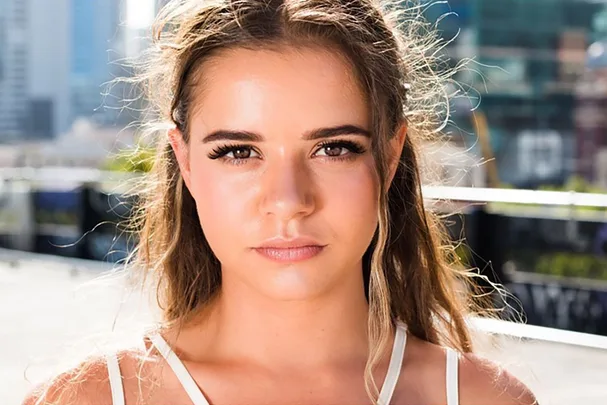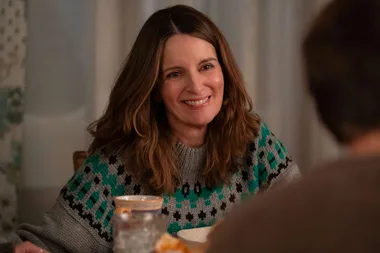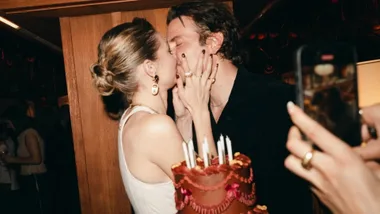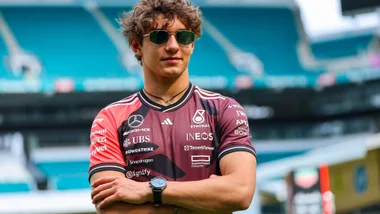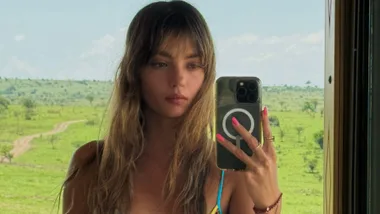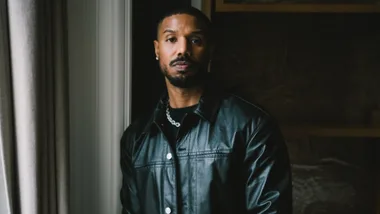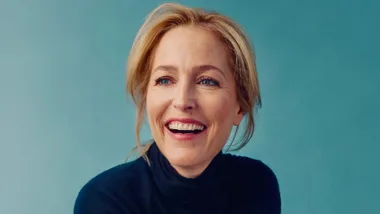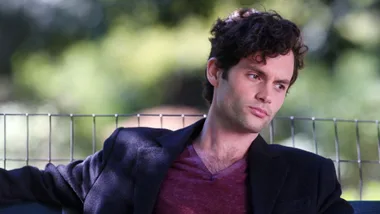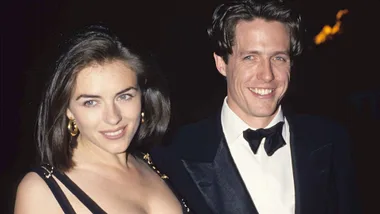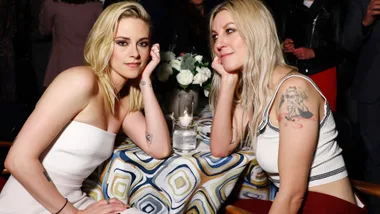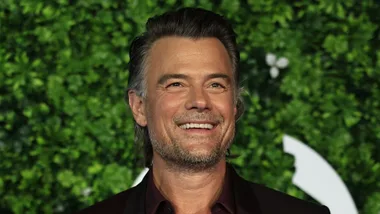On February 13, 2008, Merinda Dryden sat down with her auntie in the lounge room and watched a historic moment on television. That day, the Australian Government finally formally apologised to the Stolen Generations and said ‘sorry’ for the removal of Aboriginal and Torres Strait Islander children from their families, homes and country. Merinda, who was just 10-years-old at the time, did not fully understand her auntie’s tears or the significance of that moment. But she does now.
Raised in foster care from age three, the 20-year-old works at the Victorian Aboriginal Child Care Agency and delivers training to non-Aboriginal foster carers about Indigenous culture and history. She’s also an up-and-coming model, who counts walking in Sao Paolo Fashion Week in Brazil as a highlight.
The young Yorta Yorta and Dja Dja Warrung woman spoke with marie claire to mark the 10th anniversary of the apology and shared her experiences in out-of-home care, the progress of Indigenous affairs, and her hopes for the future.
You were 10 years old at the time of the national apology. What do you remember from that moment?
I remember sitting in the lounge room with my auntie. At the time, I didn’t really understand what was going on, but I could tell that my family were affected by it. I was like, “Why are you crying?” because I couldn’t understand why, but I knew that it meant something to them.
Now, at age 20, what does the apology mean to you?
To me, that apology was about planting that seed for things that need to happen in Australia in order for us to continue to be the country that we are. Everyone calls Australia the ‘lucky country,’ and if we focus more on how to appreciate and teach Aboriginal history and culture in the wider community, then the people that live here in Australia will be able to appreciate it, instead of just thinking, ‘Oh, that happened a long time ago, it doesn’t matter, we shouldn’t have to talk about it,’ or ‘It didn’t happen’.
Your first experience with foster care was at age 3. What do remember about the day you were taken from your home and placed in care?
I remember this car pulling up at my mum’s house. My brother and sister and I were standing at the front and I remember these people taking us in the car and my mum screaming. We were in the backseat and as the car was driving away we were looking out the back window at my mum. I saw her break down and drop to her knees crying.
We couldn’t understand what was going on. Later on that day, we were about a two-hour drive away and were told, “You’re going to be living here now with these two people”. It was on a farm. Everything had been ripped from us and we were put in a completely new environment.
Now, I can understand why a lot of people say it’s just another Stolen Generation happening because the concept is similar, removing children from one culture to another.
What was it like having to start a new life in each new foster home?
I don’t know the number of homes I was in, but I went to definitely over ten schools. Me and my brother and my sister were lucky enough to stay together, and maybe that was a reason why we got moved around so frequently. There was no stability, and if there was it was pretty rare. It was always that feeling of, ‘Here we go again’. Even leaving one foster home to go to the next, just packing our stuff—I felt so not valued. You had to be able to put on a smile and be open to meet the next family, always wondering: ‘What’s going to happen? Are we going to be safe here? Are we going to stay here for long?’ Just endless questions.
Even now that I’m out of the foster care system, I notice I tend to constantly plan things ahead—I’m still in that survival mode because that’s how we had to grow up.
Since 2008, the number of Indigenous children removed from their families and placed into out-of-home care has risen from 9,070 to about 17,664. In your opinion and line of work, what are the major issues children face in out-of-home care today?
I think the issues haven’t changed – they’ve always been there since European times. The big one is that identify crisis, children trying to figure out who they are and where they come from. There’s strong people that walked before them, but they often don’t even know that because that knowledge wasn’t passed down to them, and then it makes it harder for them to know the strength and resilience that they have in front of them.
I also think it’s important that the DHHS [Department of Health & Human Services] realises that there needs to be more support in place for the family unit as a whole. Instead of finding a problem and then removing the children when the children haven’t don’t anything – yes, they’re being removed for their own safety – but they need to put more support in place for the family unit. That one decision of saying, ‘We’re going to remove you,’ it completely turns everything upside down for that child and the family.
In your own experience, has the apology made a difference?
I don’t think anything much has changed. Yes, I have seen a lot of community members doing their own things in terms of cultural workshops, healing groups, men’s and women’s business, but they’re small and the advertising isn’t there or not enough to know about it.
If we had this conversation again in ten years time, what would you like to have seen changed?
Ten years – well, hopefully sooner than that! But in ten years time, I would expect my children would be learning their true history and their culture at school. I would hope to see more Aboriginal people in parliament, and more of an awareness from the wider community to see the good in us instead of always pointing towards the bad.
Merinda is a member of the Healing Foundation’s youth advisory group.
